Africa Day: Beyond the commemorative towards the transformative

Richard Runyararo Mahomva
The anti-colonial institutionalisation of African Unity turns 60 today. Practically and ontologically speaking, we are no longer a young continent. Remember this contemporary six decade old institutionalisation of African Unity is preceded by slave plant resistances and the now not so contemporary anti-slavery movement spearheaded by Marcus Garvey through the Universal Negro Improvement Association (UNIA) as early as 1914.
UNIA served as a pinnacle of African Unity and anti-colonial dismantling. This was arising from a collective and accumulating quest to deconstruct the dehumanising impact of slavery. Prior to UNIA noble pan-African evangelism and great exploits on the African soil, the African National Congress (ANC) had been formed on the 8th of July 1912.
Across the Limpopo, here in MaDzimbahwe (Zimbabwe) the spirit of Munhumutapa resistance had paved way for the Chimurenga resistance by 1896 forgetting the preceding Ndebele-Anglo War otherwise miswritten in our history books as the Anglo-Ndebele War of 1893.
Fast forward, the nationalist movement found its existential traction in the early 1940s culminating in the rise of the luminary cohort of liberation fighters of the early 60s. Here the Second Chimurenga was born. No amount of state arrests of nationalists stopped the trailblazing effects of the our people’s revolution.
Instead the incarceration of Joshua Nkomo, Robert Mugabe, Ndabaningi Sithole and even the current President Cde Emmerson Mnangagwa strengthened our people’s resolve to fight colonialism. The inception of the civil rights movement in the United States of Africa dovetailed with the early formations of the armed struggle for Zimbabwe. Meanwhile, Ghana had crowned herself to independence from colonial rule by 1957; followed by Tanzania in 1961; Zambia followed in 1964.
This explains why Tanzania and Zambia became the first sanctuaries of our national independence followed by Mozambique in 1975. At this point, the Samora Machel generation formed a significant turn-point to our guerrilla warfare. Mozambique’s strategic location saw an influx of youth into Maputo for military training.
This inter-generational context of African liberation is important in understanding the implementation matrix of the continent’s anti-colonial resistance and its linkages with the diaspora anti-imperialist aspirations. I address the connectivity of the diaspora struggles with those of the continent to illustrate the meaning of pan-Africanism as a collective ideological for Africans at home and abroad in fighting imperialist domination.
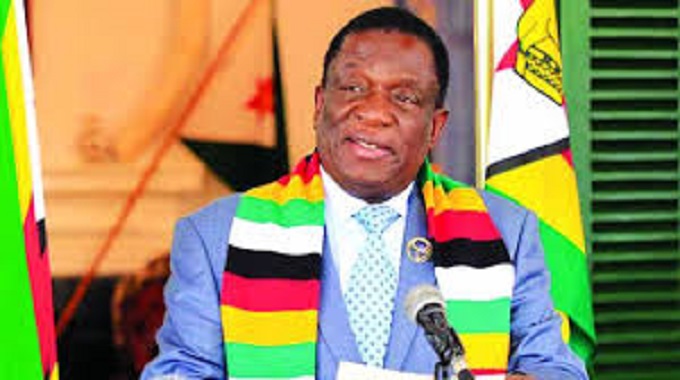
President Cde Emmerson Mnangagwa
The spontaneous unity of purpose between Africa and the Anglo-Americas born out of the Trans-Atlantic slavery profoundly explains the idea of pan-Africanism. Pan-Africanism, otherwise known as the global synergy of Africans against imperialism has lived to its best considering how it gave birth to the Organisation of African Unity (OAU) now the African Union — whose 60th anniversary we celebrate today.
Through the OAU now the AU -pan-Africanism delivered African independence, unity and the guiding moral values for governance in Africa. The OAU imagined and designed the contemporary facets of democracy.
Under the auspices of pan-Africanism, the continent and Zimbabwe in particular, has advanced values of economic indigenisation.
Sixty years later, this giant whose coordinated force to liberation was won at the expense of collective trans-continental unity endures bankruptcy, disease, poverty and under-utility.
These among many other challenges that Africa faces calls for political behavioural change. We cannot be commemorating a triumphant past punctuated by war, Western meddling in our politics, colonial dependent economies, poor health systems and a continued quest for Western validation.
Yesterday’s ideological triumphs must translate to meaningful strides for setting better standards for access to production-based education systems, modern health facilities, reliable transport infrastructure, consumer friendly prices in the shops, decent wages for all who diligently labour to build the continent.

World Bank
It’s a shame that 60 years later, we still have African countries whose banking systems are intertwined to some European countries. Our nations still depend on the West for moral templates of democracy and governance from nations that looted and continue to exploit Africa’s resources for their unjust self-enrichment and consequent over-development.
Beyond the commemorative simplicity of Africa Day on our calendar, this should be a reminder that our continental liberation was meant to dismantle inequality, disenfranchisement, poverty, class-based prejudices, structural violence and all its exclusionary manifestations. This we must emphasise to our people as the true cause of our collective fight against imperialism.
Today, those in power and those aspiring to be in power must not reproduce whatever our struggle was against. The template from the founders is there for the post-colonial generation of nationalists to emulate. Africans must be united around the rallying strength of our history and not superficial ethnic divides. Partisan prejudices must not thrive over national interests. We can differ all we want in terms of our partisan loyalties, but common interest must be upheld. Such is the definitive call to pan-Africanism as an idea of transformative leadership in Africa.
Pan-Africanism relevantly assigns us to recall that our struggles against colonial regimes were against tribalism, racism, primitive/self-serving (Rhodes-like) accumulation, inequality, dictatorship, unjust laws, suppression of dissent and poor public welfare delivery. These and many evils associated with holding public office must not be allowed to thrive in a free Africa.
Zimbabwe’s template of Operation Restore Legacy and the subsequent birth of the Second Republic is a clear example of African nationalism in a state of self-renewal.
This explains why President Mnangagwa’s policies reflect a leadership style which gestures a return to the core values of pan-Africanism and pro-nationalist consciousness. His undisputable pro-development and anti-corruption locus of transformative enunciations form the core of our national destiny as demanded by founding aspirations of our independence.
Pan-Africanism which forms the basis of state transformation also advances self-sufficiency and less dependency from our traditional exploiters and plunderers.
An Indian intellectual, Arundhati Roy aptly characterises this phenomenon and states that: “Most large-funded NGOs are financed and patronised by aid and development agencies, which are, in turn, funded by Western governments, the World Bank, the UN and some multinational corporations.
Though they may not be the very same agencies, they are certainly part of the same loose, political formation that oversees the neoliberal project and demands the slash in government spending in the first place”.
Arundhati Roy further questions:
“Why should these agencies fund NGOs? Could it be just old-fashioned missionary zeal? Guilt? It’s a little more than that. NGOs give the impression that they are filling the vacuum created by a retreating state. And they are, but in a materially inconsequential way.”
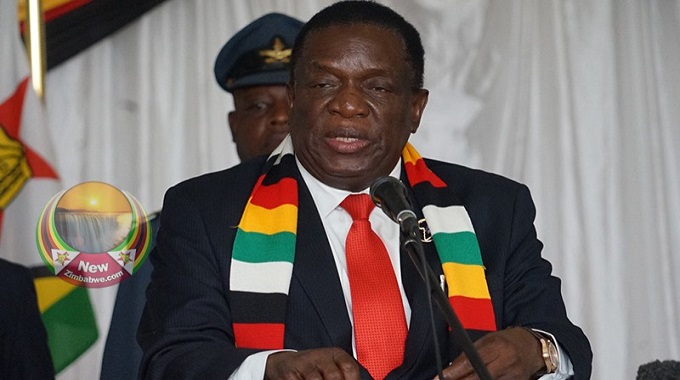
resident Mnangagwa
Arundhati Roy goes further to point out that:
“Their real contribution (NGOs) is that they defuse political anger and dole out as aid or benevolence what people ought to have by right. They alter the public psyche. They turn people into dependent victims and blunt the edges of political resistance. NGOs form a sort of buffer between the sarkar and public. Between Empire and its subjects. They have become the arbitrators, the interpreters, the facilitators.
Put simply Arundhati Roy calls for internal dependency systems and self pre-determined political values for the betterment of the Global-South. This is a relevant prescription to transformative governance cultures that African states must put in place. Africa at 60 means political culture transformation. Africa at 60 entails a new call to organise and centralise.
Richard Runyararo Mahomva is the Director for International Communication Services in the Ministry of Information, Publicity and Broadcasting Services. He writes in his own capacity.


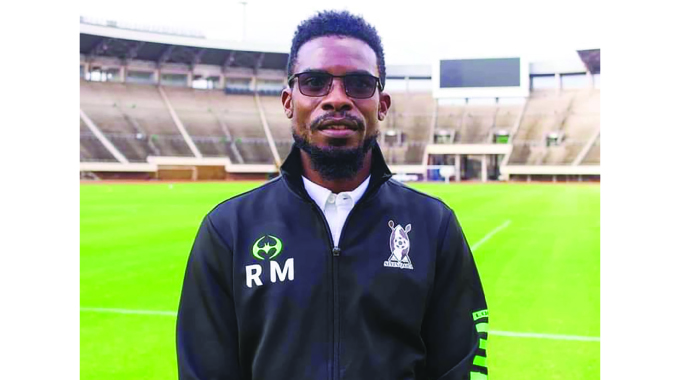

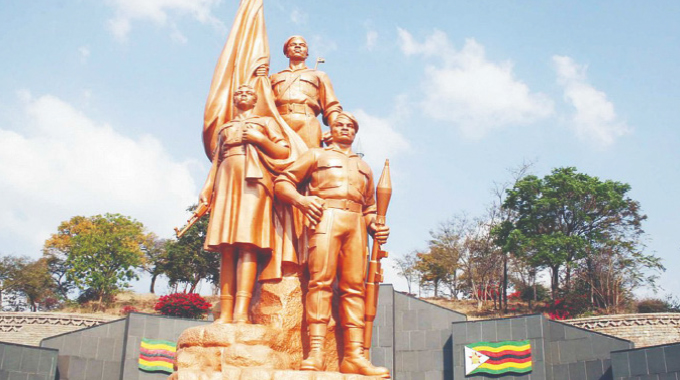
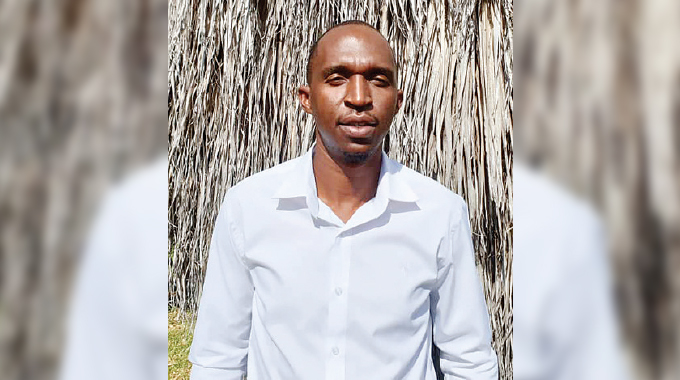






Comments